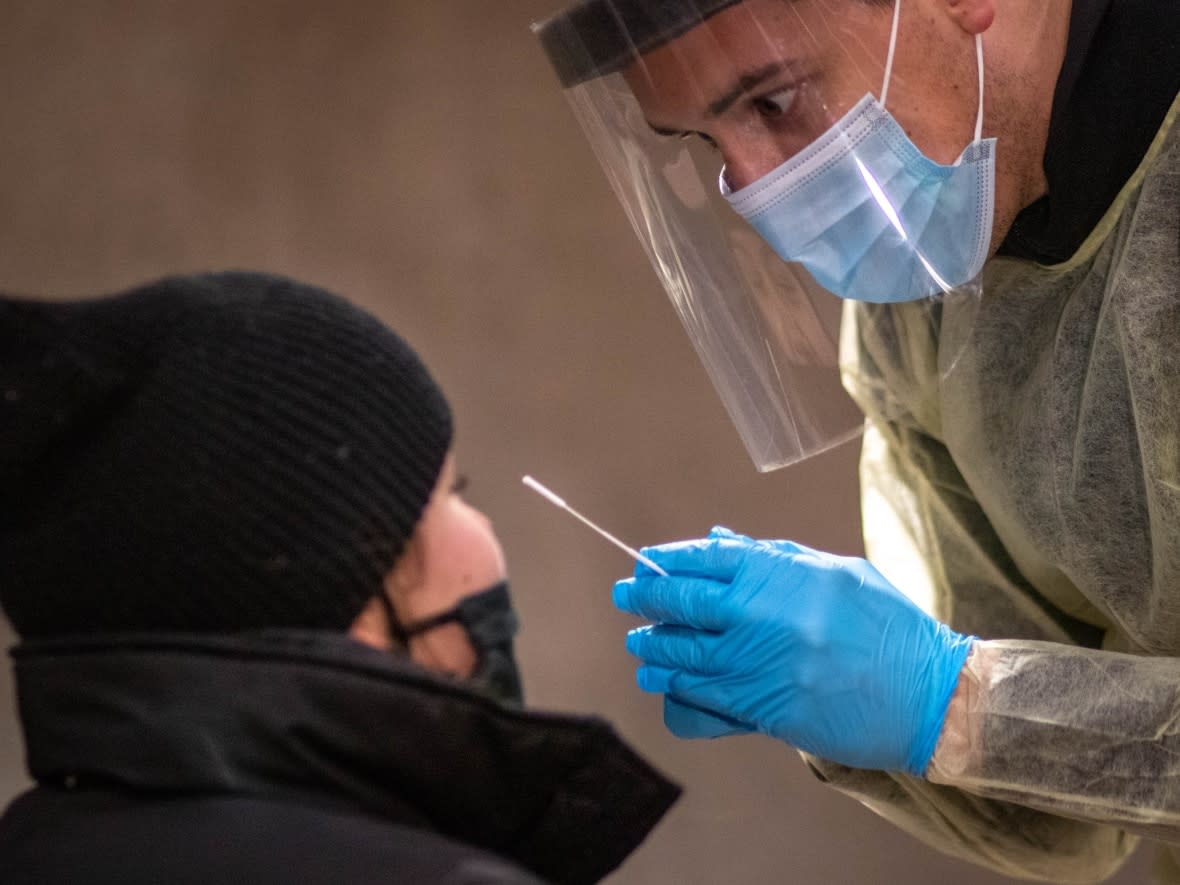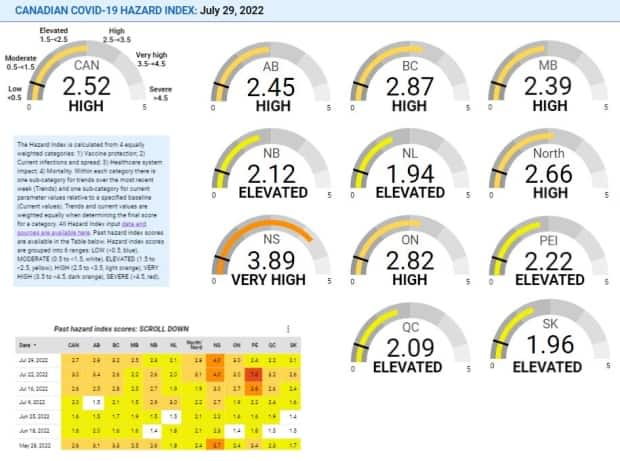Group lists N.S. at top of COVID-19 hazard index for infections, impact

Researchers analyzing COVID-19 data from across Canada have rated Nova Scotia the highest in the country in its hazard index for the week of Aug. 5.
In the previous index for the week of July 29, COVID-19 Resources Canada rated Nova Scotia very high on its hazard index. The rest of the country was rated either high or elevated.
The latest rating drops Nova Scotia to high on the hazard index but the province still has the highest score in Canada.
The group gets funding from the Public Health Agency of Canada.
It comes as Nova Scotia reported no new deaths this week in its COVID-19 update — a first since Jan 3.
Nova Scotia's Department of Health and Wellness said it was unable to comment on the index as "we do not know the data sources or methodology used to analyze the data."
"In the first Omicron wave and even to some extent in the second Omicron wave, Nova Scotia had fewer per capita cases than a lot of the rest of Canada," said Tara Moriarty, an infectious disease expert at the University of Toronto and the co-founder of COVID-19 Resources Canada.
"Nova Scotia kind of hung on and did better for longer during the first and part of the second Omicron waves than many other provinces.
"A second part of the issue is there were more people to be infected for the first time in Nova Scotia than in the rest of the country and I think that's partly why Nova Scotia is doing consistently worse this time around."
To come up with the hazard index, Moriarty said her group looks at infection rates, vaccine protection, impacts to the health-care system and deaths.

Over the last few weeks, Moriarty said infection rates are high in Nova Scotia. She said COVID-19 is appearing in wastewater, reported hospitalizations the Canadian Critical Care Society collects, deaths, intensive care admissions and vaccination rates.
"All of the indicators, especially for the estimated actual infections and wastewater, have been high in Nova Scotia for quite a while, which is partly why Nova Scotia is kind of stuck at this very high level," Moriarty said.
COVID-19 Resources Canada updates its hazard index once a week. Moriarty said while smaller populations tend to have more volatile results, in larger populations there isn't as much up and down.
"We don't see it with Nova Scotia or Saskatchewan ... most of the provinces that are north of 700,000 people, the trends are a lot more stable," Moriarty said.
"P.E.I. is a small place for example and if you have one big event in Charlottetown that drives a lot of transmission you can see a really big effect but it might not spread out to the rest of the province."
Moriarty said Nova Scotia was consistent with its index score for the last two weeks. COVID-19 Resources Canada said if the score decreases, "it's pretty reasonable to assume that it's going to continue improving for a while and it won't bounce too much."
Impacts on health-care system
Halifax Atlantic MLA Brendan Maguire said he wasn't surprised to see Nova Scotia ranked highest on the index. He said health-care professionals and front-line workers have been sounding the alarm for a while.
"We're seeing an impact on our surgeries, we're seeing an impact in the emergency rooms so we've brought this up in the legislature that COVID is here, it's bad and there's just no recognition," Maguire said. "It shows what we're saying is true and hopefully it's an eye-opener for the government."
Maguire said there needs to be more COVID-19 data collected and shared by the province to help people make decisions.
"At the very least what they could be doing is encouraging people to take a little more precaution when they're out in public," he said.
Nova Scotia's Department of Health and Wellness encouraged Nova Scotians to get their data from the provincial and federal governments.
"Nova Scotians are reminded that the virus continues to have an impact in our province. They should continue to take steps to minimize their risk of exposure and that of those around them by wearing a mask when in public spaces, staying home when they don't feel well, and getting vaccinated when they are eligible," a spokesperson for Health and Wellness said in an email.
MORE TOP STORIES


